‘The O.C.’ at 20: The Chaotic Making of a Teen TV Classic
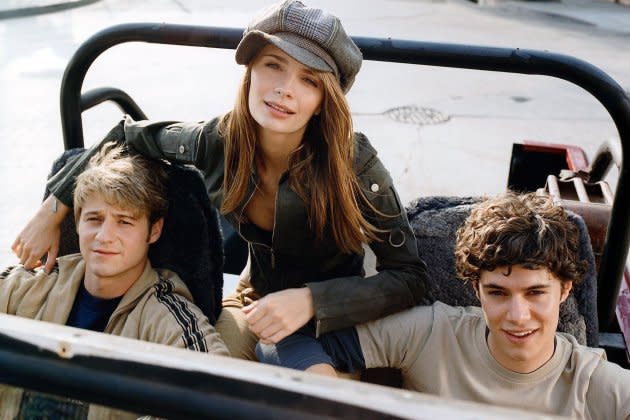
“Welcome to The O.C., bitch!”
With those five immortal words, a cultural phenomenon was born.
More from Rolling Stone
'Lessons in Chemistry' Creator Can't Stop Gushing Over Brie Larson
'The Curse' Episode 3: Nathan Fielder and Emma Stone Fight Like Hell
The brainchild of a then-25-year-old Josh Schwartz, and guided by the steady hand of his producing partner Stephanie Savage, The O.C. ran for four chaotic seasons on Fox before sailing off into the sunset (or, in the case of poor Marissa Cooper, crashing in a fiery wreck).
A fish-out-of-water tale about Ryan Atwood (Benjamin McKenzie), a troubled kid from Chino who’s adopted by Sandy (Peter Gallagher), Kirsten (Kelly Rowan), and Seth Cohen (Adam Brody), one of the wealthiest families in tony Newport Beach, and falls for the tortured rich girl next door, Marissa (Mischa Barton), the teen drama sampled Eighties classics like The Karate Kid, The Breakfast Club, and Say Anything… in service of its singular vision, fostered by The Bourne Identity’s Doug Liman, who directed the pilot. It made teen idols of its four leads — McKenzie, Brody, Barton, and Rachel Bilson — and served as a launching pad for numerous indie bands, from Death Cab for Cutie and Modest Mouse to The Killers and Imogen Heap. Labels begged music supervisor Alexandra Patsavas to debut new songs by acts like The Beastie Boys (“Ch-Check It Out”), Gwen Stefani (“Cool”), and Coldplay (“Fix You”) on the hit series, which also happens to be indirectly responsible for shows like Laguna Beach (plus spinoffs The Hills and The City) as well as The Real Housewives of Orange County (and by extension, the entire Real Housewives universe), and boasted early turns from the likes of Chris Pratt, Olivia Wilde, Shailene Woodley, and many more.
To mark the 20th anniversary of The O.C., a new book by our very own Alan Sepinwall — Welcome to the O.C.: The Oral History — is hitting bookstores on Nov. 28. It’s a comprehensive oral history of the addictive soap, featuring interviews with its creators, cast, and crew, revealing how a modern TV classic (barely) got made.
Rolling Stone spoke with Schwartz and Savage, who would later go on to create Gossip Girl, about all things O.C.
It’s wild how producer McG initially envisioned The O.C. as a show about “sexy real estate agents” set in Orange County, which sounds an awful lot like Selling Sunset, which was made by Adam DiVello, who created Laguna Beach, which was based on The O.C.
Schwartz: And now they’re doing Selling the O.C. All roads lead back. But he was right! At the time we were like, “A show about real estate? What’s the cliffhanger going to be, them going into escrow? But looking back on it, it made a lot of sense.
ORDER ‘WELCOME TO THE O.C.’ HERE

The cultural impact of The O.C. can’t be overstated. You have not only Laguna Beach and its spinoffs The Hills and The City, but also the entire Real Housewives universe, since the first one was The Real Housewives of Orange County, which was definitely inspired by The O.C. Plus, all the actors who featured on the show throughout its run.
Schwartz: And if I might add, the music!
Savage: And the writers!
Schwartz: This whole experience of looking back on the show, the making of the show, and the legacy of the show has been extremely gratifying. We’re honest in the book about our experience making the show, and I did feel when the show ended after Season Four that I had failed. And now, all these years later, and all these things that have been influenced by the show, I have to revise my earlier declaration and say that maybe we didn’t fail. We succeeded at something.
Do you have a piece of Housewives or Laguna Beach? You certainly deserve it.
Schwartz: We did fail there! [Laughs]
Savage: That’s where we failed. Also, not trademarking “Chrismukkah” was a big fail.
I was not aware that the The O.C. was initially pitched as a show about Lucy Mu?oz, the daughter of a gardener to a rich WASP-y family, the Atwoods.
Schwartz: Thematically, where we started and where we ended up is similar. We wanted to make a show about outsiders and have someone who wasn’t privileged be the audience’s POV and the audience’s entrée into this world. Pretty quickly into the process of putting the show together and pitching it to Warner Bros. they were like, “We have a problem.” They had a couple of shows that year that had a similar Romeo and Juliet story involving people from two different backgrounds, and in both cases the other shows were a Latina and white guy romance. We were like, “We’re dead.” What do you do when the entire concept for your show has been thrown out? But we were able to quickly pivot and make this shift. Stephanie had just gone to a charity function where Gail Berman was being honored, who was the head of Fox, and it was about attorneys going above and beyond on behalf of their clients. We were like, “What if that’s the dad?”
The Olivia Wilde connections to this show are recounted throughout the book. She auditioned for Marissa; ended up starring in Skin, a very similar show conceptually; and then popped up in the second season of The O.C. as Alex.
Schwartz: It was her first audition. She’d just moved out to L.A., we thought she was awesome, and it came down to her and Mischa for the role of Marissa. Marissa was a character who Ryan felt like he needed to save and protect, and Olivia doesn’t need saving or protecting. She can do that quite well on her own. So, ultimately, she didn’t feel right for Marissa, but we felt she was a singular screen presence. Skin wasn’t really competition. We were on the same network. But when that show ended, we were like, “We have to get her on the show immediately.”
Savage: And our casting director, Patrick Rush, actually put Olivia and D.J. Cotrona, who had read for Ryan, on Skin.
It’s wild how Fox gave you grief over Alex’s same-sex kiss and yet they green-lit a show about the daughter of a pornographer falling in love with the son of the district attorney.
Schwartz: They allowed us on The O.C. pilot to have Ryan, a teenager, smoking a cigarette, which is fucking unheard of. There were kids doing cocaine at the party and Seth is like, “Cocaine…. awesome.” There were threesomes. We were getting away with a lot of stuff that first season. Then you had that [Janet Jackson] Super Bowl moment and that changed the rules for broadcast TV. And the Marissa-Alex storyline just happened to fall in the wake of that. We had to resolve that storyline very, very quickly. We had been asked repeatedly to cut back their kiss due to broadcast standards. It started as a passionate kiss and got whittled down to a peck. But the Fox promo was still like, “Stay tuned next week for the SHOCKING kiss!” And we were like, “Guys… that’s not what’s in the show anymore!”
Savage: We didn’t want to treat it like an afterschool special. It was just another pairing of two people interested in each other and exploring something that they didn’t know. It was really in the tone of the show and I think that’s why audiences responded to it.
I wanted to ask you about some of the prototypes for The O.C.’s characters. In the book it says they were Jeff Goldblum for Sandy, Michelle Pfeiffer for Kirsten, Dennis Quaid for Jimmy Cooper, Kate Bosworth for Marissa, Josh Hartnett for Ryan, and Jason Schwartzman for Seth.
Schwartz: That’s true! We wanted to have a presentation where you go in and you pitch the show, and you have a board with you so people can follow along who the characters are as you’re doing it. I basically performed the whole pilot story over the course of thirty minutes. And I think if you look at the prototypes and look where we ended up, we did pretty good.
One very funny story in the book is that you looked at Chris Pine for the role of Ryan, but his acne was too bad to be cast.
Schwartz: I personally don’t recall that, but that was our casting director Patrick’s experience.
And the book reveals that you met with Emma Stone for the role of teenage Kaitlin Cooper — the younger version, of course, having been played by Shailene Woodley.
Savage: She hadn’t even acted in anything!
Schwartz: Emma had just moved out to L.A. and was managed by a friend of mine, so he said, “Just meet her.” She looked like Melinda [Clarke] and was so funny and vivacious in the room, but she’d literally not done anything before. It’s wild that it was Shailene, Emma, and all these people!
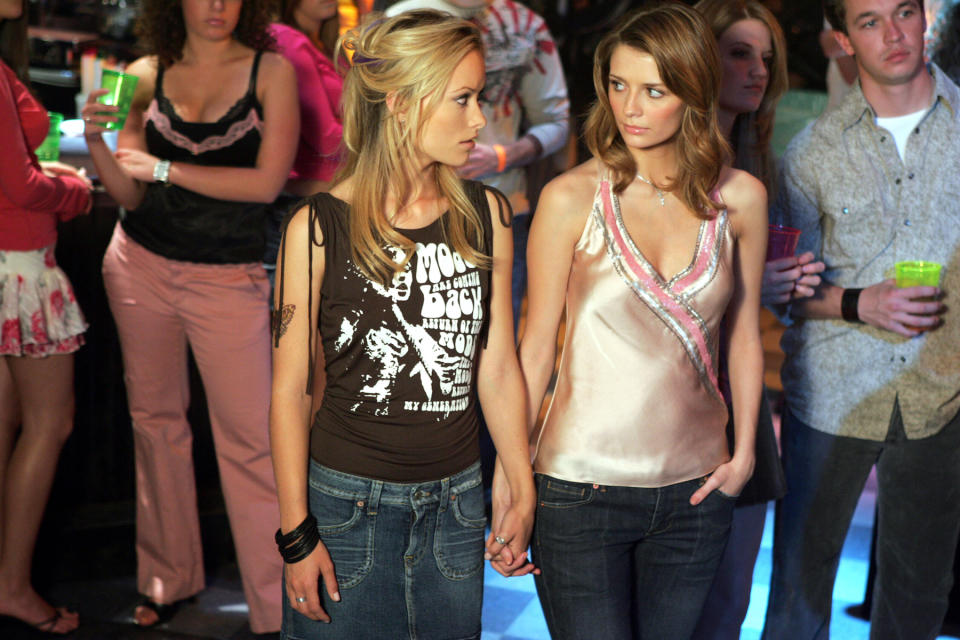
I love how Max Greenfield played young Sandy Cohen on The O.C., and then Peter Gallagher ended up playing Schmidt’s dad on New Girl.
Savage: That was the J.J. Philbin connection. J.J. was a writer on The O.C. with us, and very much there when we were doing that flashback episode, and then she was on New Girl. J.J. made that happen.
Schwartz: And I’ll admit that I did not know until this moment that Peter played Max’s dad on New Girl.
And even Chris Pratt going to Parks and Recreation stemmed from The O.C., since Parks and Rec creator Mike Schur’s wife is J.J. Philbin, who recommended him to her husband.
Schwartz: That’s how these things work. People don’t realize that you’re on a show, it’s a small town, and in this case one of our writers was married to the guy who was creating Parks and Rec, but everybody talks.
Savage: And Mike Schur was actually on The O.C. He played a representative of G.E.O.R.G.E. [Laughs]
The theme song of The O.C., “California” by Phantom Planet, is iconic. I had no idea that you originally wanted Interpol’s “Untitled.”
Savage: They asked us to change it because they thought it was too dark.
Schwartz: We were shooting the pilot while we had a writers’ room going, and we had a trailer based on the first two weeks of shooting. In that sequence when Ryan’s driving from Chino to Newport with Sandy we were like, “We want to put a song in that will make the network executives lean in.” “California” had been out a year or two prior which was why we hadn’t used it at first, because we thought everyone had already heard it, and we put it in that sequence and everyone was like, “What is that song?! That song’s incredible!”
I know you unfortunately didn’t trademark “Chrismukkah,” but it’s really entered the cultural lexicon.
Schwartz: We were proud to make a show that had characters like Sandy and Seth who wore their Judaism on their sleeves, and Kirsten was the ultimate shiksa for Sandy. The fact that he married this blonde daughter of a real estate magnate in Newport, and the fact that she married this public defender who was Jewish from the Bronx — there’s this rebellion at the core of their marriage that was interesting and specific to their family. We liked the fact that the Cohen’s were proudly Jewish and proudly interfaith as well. That term “Chrismukkah” came from writer Lauren Gussis’ family, who had celebrated that, and we loved the idea of Seth educating Ryan on it. What’s really fun about that episode is it’s the first one that Stephanie wrote for the show. We got to trade places.
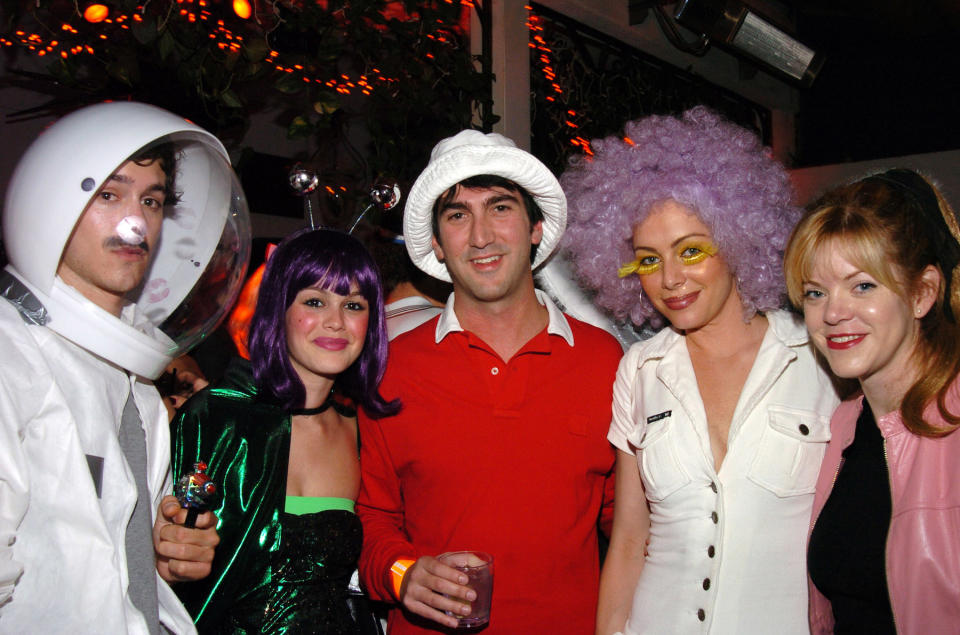
I wanted to talk about the show’s Jewishness, too. It was pretty groundbreaking in the sense that it was this teen sitcom in primetime whose central character is Jewish and, as you put it, wore it on his sleeve.
Schwartz: When I went to USC and met all these kids from Orange County in my fraternity, I was often the only Jew. So, I was very aware of how little Judaism there seemed to be happening in Newport, at least in my experience. That just felt interesting. What was it like not just for Seth but for Sandy to be in this world and be Jewish? I remember when we were shooting the Passover episode, Summer’s learning the four questions and everyone’s wearing yarmulkes and I remember thinking, “This is cool. I could’ve used this when I was younger and you’re searching for things onscreen that seem familiar and aspirational.”
I love that there’s a section in the book on that piece of shit Oliver Trask because he really is one of the most hated TV characters ever. You all regret the way you tipped your hand in those episodes and gave away his intentions too early.
Savage: That was a lesson that we learned from that story, and then in Gossip Girl we locked into that in a way, and we were able to do one of those stories every year that the audiences enjoyed because we told it in the right way. This was not a good way for the audience to learn about the story.
Schwartz: Everyone was so frustrated by that storyline because they knew what Ryan knew so they were like, “Why isn’t anyone else getting this?! Come on, Seth!” But I think Taylor [Handley] was very good and very effective, and that’s why that has endured.
When you saw Archie becoming a cage fighter in Riverdale to process his trauma were you like… wait a second.
Savage: I think we missed that chapter!
Schwartz: Once again, I have to admit that I’m not aware of this!
And Ryan becoming a cage fighter is set to “Running Up That Hill” — albeit the Placebo cover. When you saw Kate Bush’s original version used on Stranger Things were you thinking, “We sorta did that first.”
Schwartz: We had a cover of “Forever Young” that Youth Group did and then the original got sampled by Jay-Z and became a huge thing again.
Savage: Jason Derulo’s sample of Imogen Heap’s “Hide and Seek.”
Schwartz: And Ryan being into Journey definitely predated The Sopranos ending with Journey.
Because [Mischa] was written off the show everyone assumed her behavior was the worst, which it wasn’t, and that she wanted off the show the most, which she didn’t. It was that the chemistry on the show wasn’t working.
And Ryan’s character being into Journey just came from a line from Ben where he said on set, “I don’t like that stuff. I just listen to Journey,” and then you put it in the show.
Schwartz: We used to do that all the time. We’d hear stuff in real life and then write it into their character on the show. That’s how Death Cab happened.
Savage: And also how Golden Girls happened.
I don’t think enough real estate in the book is dedicated to Ryan’s sartorial choices, specifically the choker. Though there is a funny anecdote where Ben is not happy about being in a tank top. How did you come up with his look and also convince Ben to rock it?
Schwartz: I’m not sure we ever fully convinced Ben. [Laughs]
Savage: The idea was that Ryan was going to show up in Orange County with one outfit — the clothes on his back — and he seemed like the kind of kid that would want to wear some clothing that was a little bit like armor, so that classic 1950s leather motorcycle jacket felt right. But he’s also a kid and contemporary, so a hoodie. And he’s also someone who’d have just a six-pack of Hanes T-shirts, but at some point, they turned into tank tops instead of T-shirts. Whether it’s James Dean or 1970s Matt Dillon, we wanted him to look like this super masculine, timeless guy. And then we were like, let’s give him one thing that maybe a girl gave him or something, and it ended up being the choker, which we justified as being an homage to Jared Leto’s character on My So-Called Life. But then we got rid of it pretty quickly because it was distracting.
Schwartz: We had Luke wearing his puka shells!
We’d be remiss to not discuss the Season Three chaos. One story I found funny was that you got Seth addicted to pot because Adam Brody was pretty checked out of the show.
Schwartz: That’s the story! It’s a storyline we would’ve made fun of during Season One, or on The Valley, but we somehow ended up there.
Savage: And then I think that story got way more heightened than we would’ve liked to have made it because then the network was like, “Is this story going to result in something? Is some incident going to happen?” We would’ve liked to keep it as a funny inside joke for us, but apparently you can’t just smoke pot and you had to burn something down.
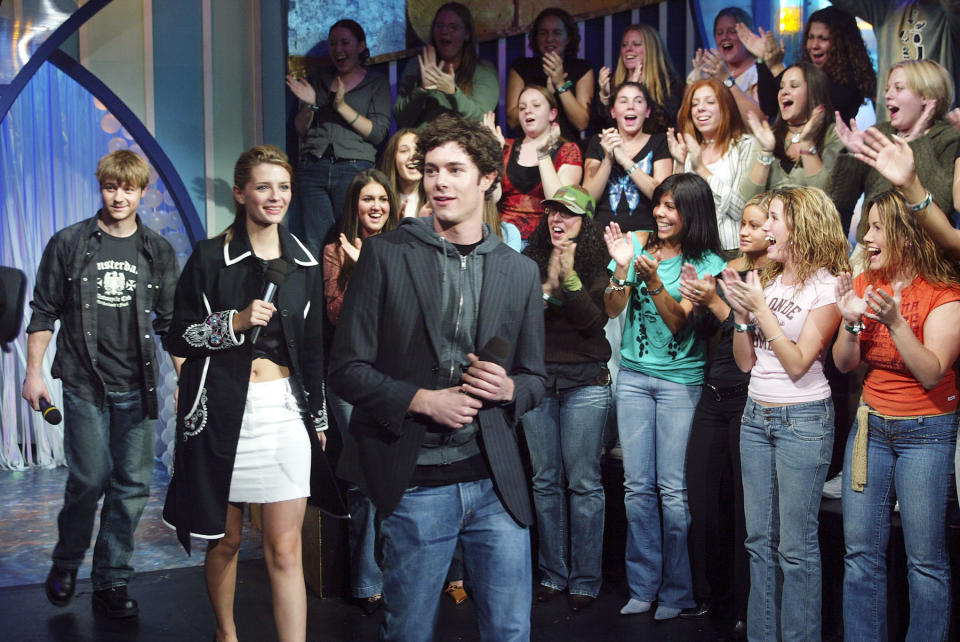
I remember getting the impression from the tabloids at the time that Mischa Barton was the one who wanted out, and she was the one who shouldered a lot of the blame for the way Season Three ended up. But in the book, you get the sense that it was more Brody who wanted out and made it known on set. In retrospect, it seems like everyone was very unfair to Mischa.
Schwartz: Looking back on that era and how the early internet treated young women — Perez Hilton has been pretty vocal about how vicious he was to Britney Spears or Lindsay Lohan — that was the moment where those girls were treated pretty cruelly by the internet at large, and Mischa was a part of that group, along with Paris Hilton and others. Because [Mischa] was written off the show everyone assumed her behavior was the worst, which it wasn’t, and that she wanted off the show the most, which she didn’t. It was that the chemistry on the show wasn’t working. We had a number of actors who were kind of over it. Mischa had been on the show since she was 16, had been working non-stop, and expressed maybe wanting to go to college. And we had this external pressure on us by the network to make something big happen or we were getting canceled. There were so many forces at play that led to the decision to kill off Marissa’s character, and it’s something that we plainly state in the book that we regret. The night that episode aired, we heard from people who watched the show and they were pissed. They loved that character, were in on Ryan and Marissa, were in on the Core Four, and it felt like we had violated something sacrosanct for them as viewers. We just went, “Holy shit.”
How do you feel Adam Brody comes off in the book? There are all these stories about how unprofessional he acted during Season Three and Season Four, and even stories about how he didn’t want to act opposite George Lucas in an episode because he hated the prequels.
Schwartz: Let me start all of this by saying: I love Brody. We’re still really close. We see each other multiple times a year. I felt really close to him during the course of the show, and because I respected him so much, it was hard when I felt like he wasn’t happy about the material we were giving him for Seth or where the show was going. Had I talked to him about it at the time, I think he would have had a lot of really good ideas. I didn’t have the experience to deal with it properly. He is a little bit of a crank and he’s got a lot of opinions, and he’ll tell you that. That’s just Adam. But everybody loves him.
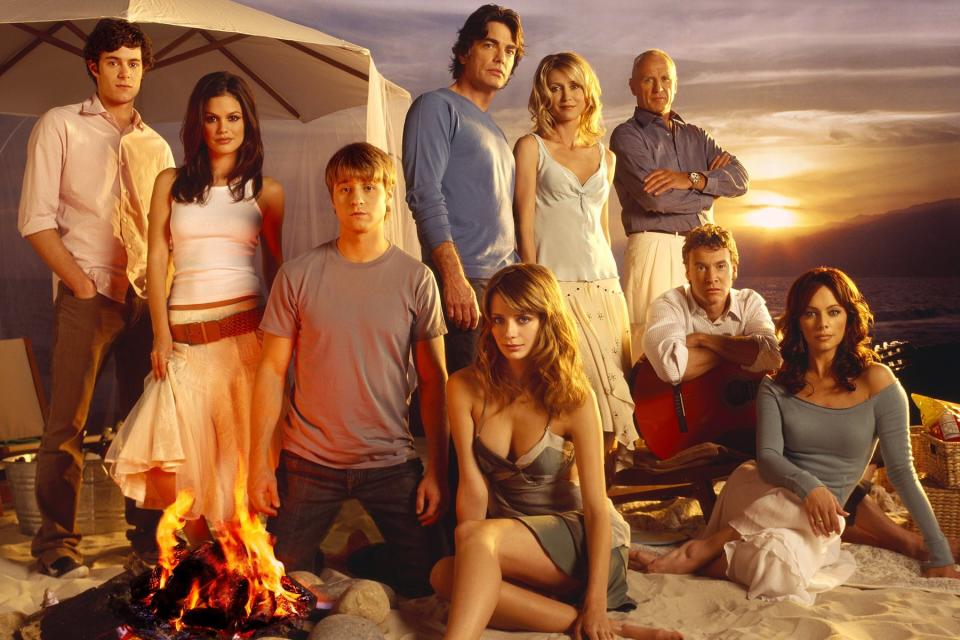
Savage: It was just painful for us because Adam did put a lot of himself into the Seth character at first, his was the breakout character, he was amazing, and he was the conduit for Josh to bring his voice to the show. When he started to be unhappy, it felt more dysphoric than it would have been with a regular actor who you didn’t feel was your friend or was in this collaboration with. That heightened the emotions around some of those scenes. The highs were so high that the lows felt lower.
What was your reaction when you first saw The O.C. parody “Dear Sister” on SNL?
Schwartz: It’s hilarious. My buddy who works for Lorne Michaels texted me the clip and I was like, “Did I miss this? Was this from, like, five years ago and I just never saw it?” And he was like, “No, it’s from last night.” I was like, “Why are they doing it now?!”
Savage: And with no setup or reference! The expectation is that people will understand what’s happening here.
Schwartz: That’s kind of the dream: You make something and ten years later it can be parodied on SNL and people will get it. The Lonely Island guys started out doing The ‘Bu, which was a parody of The O.C., and so we’d met those guys and they’d always been nice, so it made sense. But at the end of the day, it was fuckin’ really cool.
It’s revealed in the book that you had a conversation with Ben and Adam about rebooting The O.C. fairly recently.
Schwartz: About a year and a half ago. It is a conversation that I would never have thought about having. I was just happy that we’d found our way back to each other and become friends again. I didn’t really have an idea other than I wanted to open it with Ryan and Seth getting colonoscopies and it would be about what it’s like to be cute guys in their 40s. But I didn’t even want to think about doing it without the original cast. We did a version of Gossip Girl where you take the concept and apply it to a new generation of kids, but that had a certain concept to it that allowed for a reboot, or requel, or what have you. The O.C. felt very tied to those characters and that story.
Savage: A new family that moves into the Cohen house does not feel like the premise of the show.
Schwartz: And Ben was like, “I’m not sure if I would act in it, but I would direct it.” I was like, “Great! You go get Brody and you can direct it.” I let it be Ben’s problem to get Brody. And Brody was sweet about it, we chatted about it, and ultimately, we felt like we should just be proud of what we made.
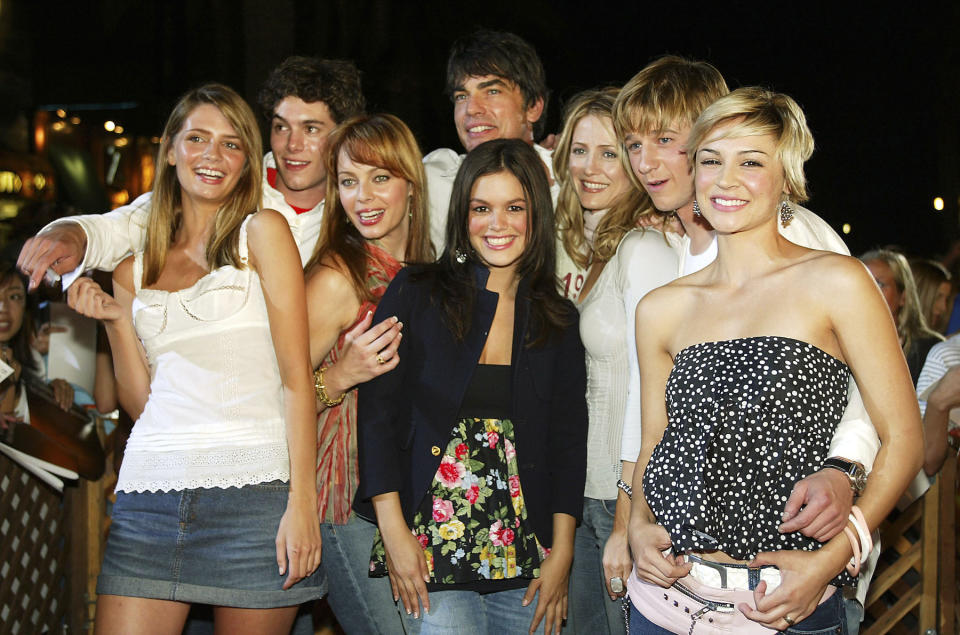
Did you two set up Adam Brody and Leighton Meester?
Schwartz: We did introduce them initially. We were all at Canter’s Delicatessen.
Savage: The Gossip Girl cast was in L.A. for a TCAs event.
Schwartz: We invited everyone out to a late-night thing at Canter’s, which is what we always did, so everyone was there, and they met then. But then they did a film together called The Oranges a couple of years later and that’s when they connected romantically.
Canter’s is good stuff. I’m obsessed with that Matt’s Special sandwich.
Schwartz: Are you fucking with me?!
No! I love it.
Schwartz: I was there when that sandwich was pitched. One of my closest friends, Matt Miller, pitched that sandwich. I have the article from the LA Times framed where he was in the newspaper holding the sandwich next to his face because he was the first guy to get on the menu in, like, fifty years. To help the sandwich go from the daily specials to getting laminated, we had to drum up word of mouth on the sandwich, so we’d bring The O.C. cast there all the time. And Brody became obsessed with the Matt’s Special, and Rachel would order the Matt’s Special, and our whole cast would go to Canter’s late-night and order this sandwich. And that’s what Adam was probably eating when he met Leighton for the first time.
Best of Rolling Stone
